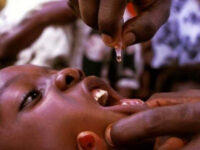
In response to the recent declaration by the World Health Organization (WHO) that Mpox is a Public Health Emergency of International Concern (PHEIC), the Ministry of Health (MoH), through the Ghana Health Service (GHS), has activated its emergency response plan to address the potential threat of the disease within the country.
This move, according to the ministry, aligns with the WHO’s determination to intensify global efforts in combating the spread of Mpox, particularly in Africa.
On August 14, 2024, the WHO Director-General, Dr Tedros Adhanom Ghebreyesus identified the significant upsurge of Mpox cases in the Democratic Republic of the Congo (DRC) and an increasing number of countries across Africa as constituting a PHEIC under the International Health Regulations (2005). The WHO has expressed concern about the potential for the disease to spread further across African nations and possibly beyond the continent.
Consequently, the Ministry of Health issued a directive to all implementing agencies and stakeholders to heighten surveillance systems at all levels. This directive includes enhanced monitoring at Points of Entry (such as airports and border crossings) and increased vigilance within communities nationwide.
The Ghana Health Service also released detailed technical advice on the symptoms of Mpox and the necessary steps for early detection, reporting, and treatment.
While Ghana recorded 120 cases of Mpox in 2022 and 8 cases in 2023 respectively, there have been no reported cases in 2024.
However, the Ministry remains vigilant and urges the public to take proactive measures to prevent a resurgence of the disease.
“In light of the WHO’s declaration and the potential risk of Mpox spreading, the Ministry advises the general public to utilize the available healthcare facilities provided by the Ghana Health Service and Teaching Hospitals for any symptoms or concerns related to Mpox.
“Early detection, timely reporting, and prompt treatment are crucial to containing the disease and preventing further spread. The Ministry remains committed, prepared, and ready to lead the provision of Universal Health Coverage (UHC) in Ghana.
“We urge all citizens to cooperate with health authorities and adhere to the guidelines provided to safeguard public health.”
END





